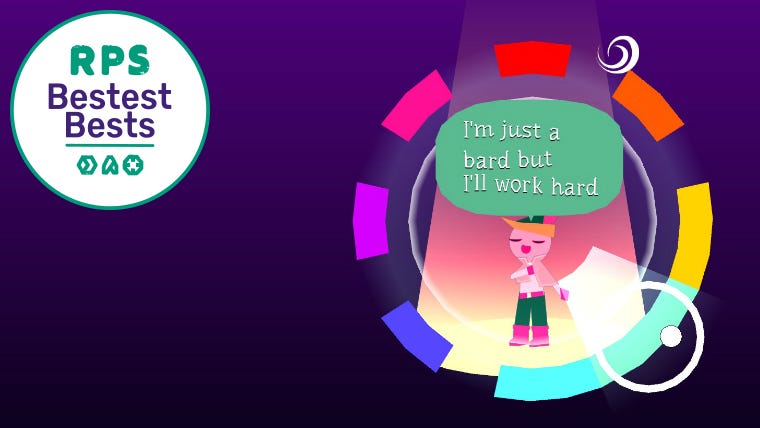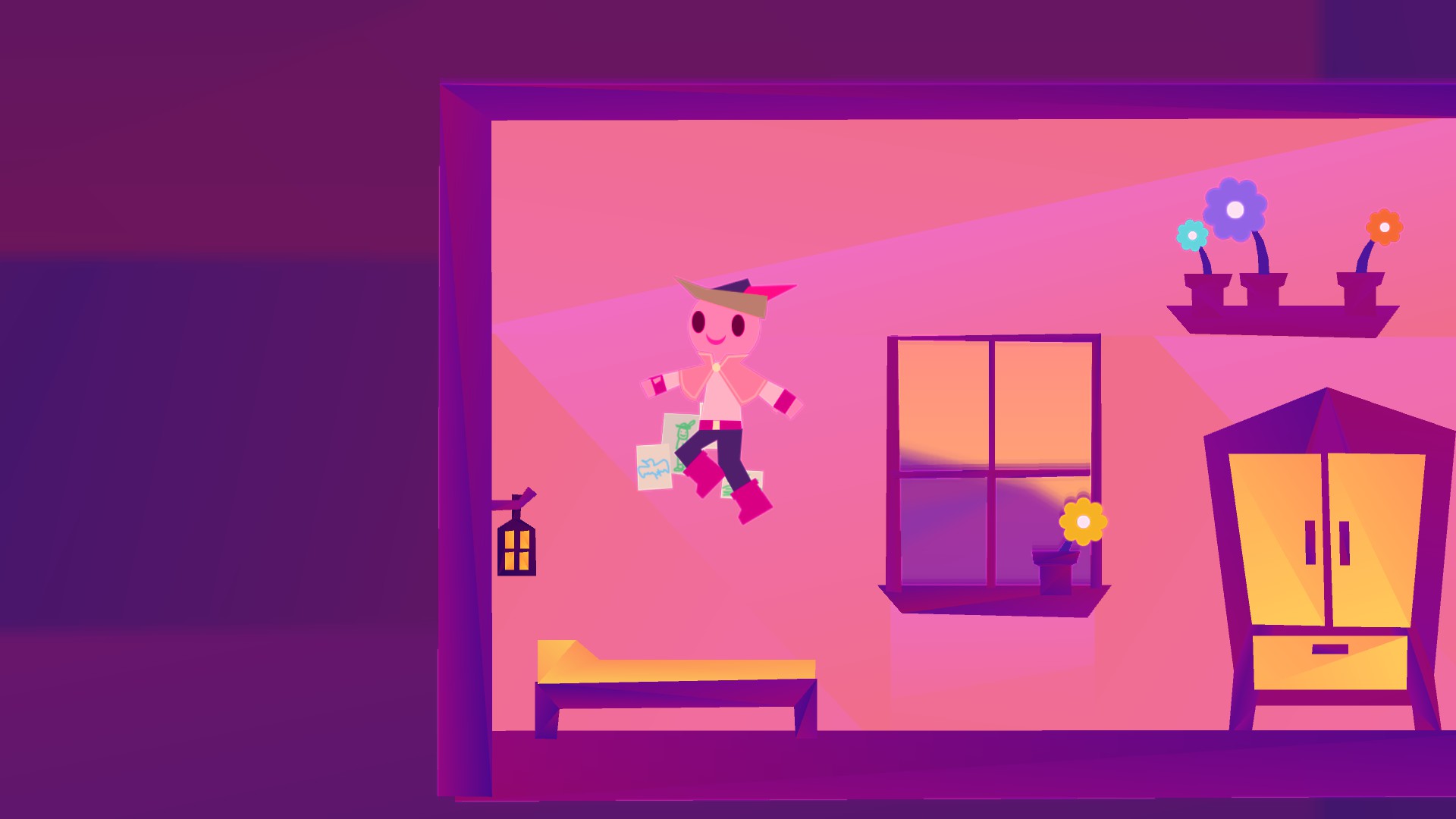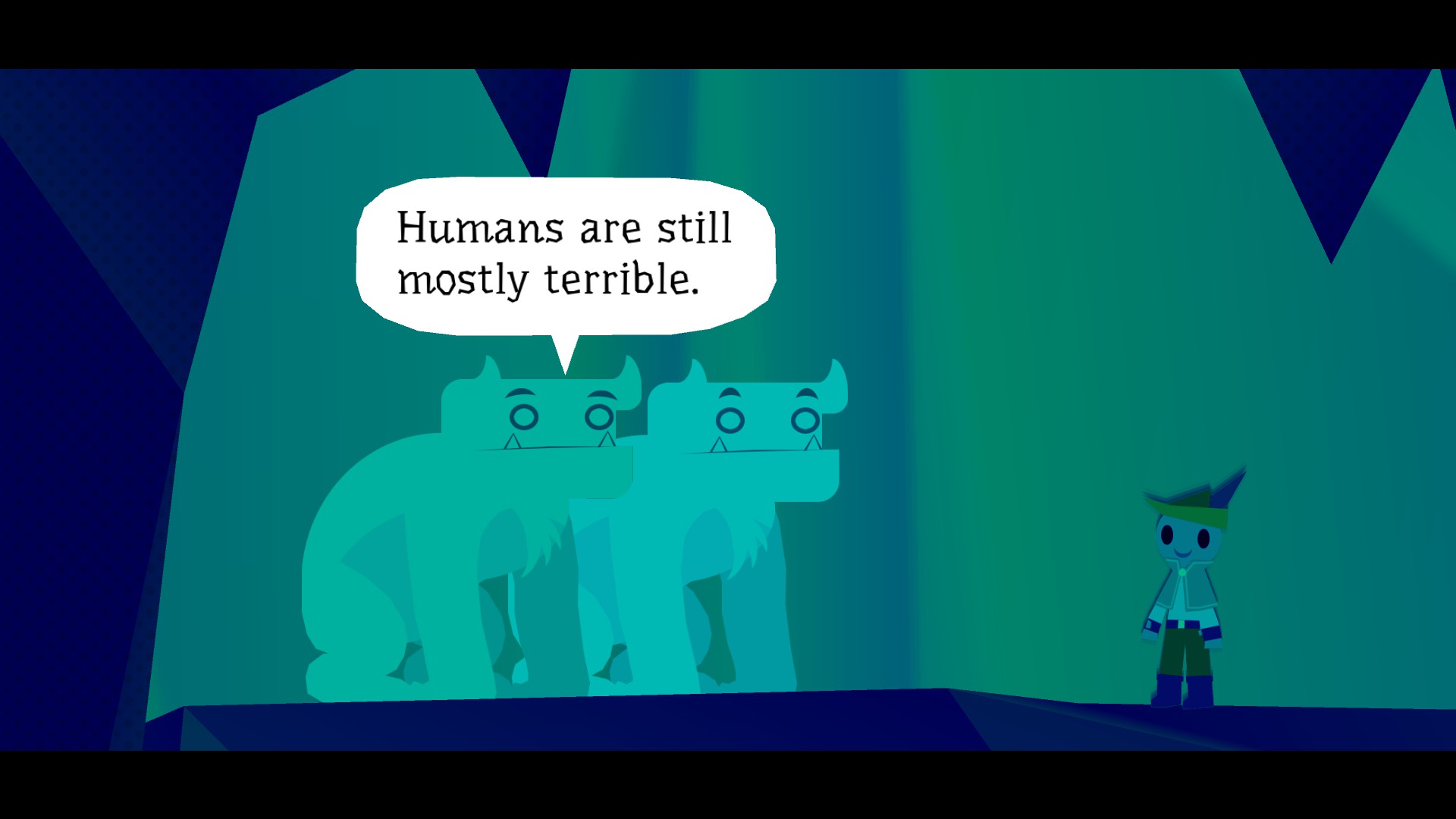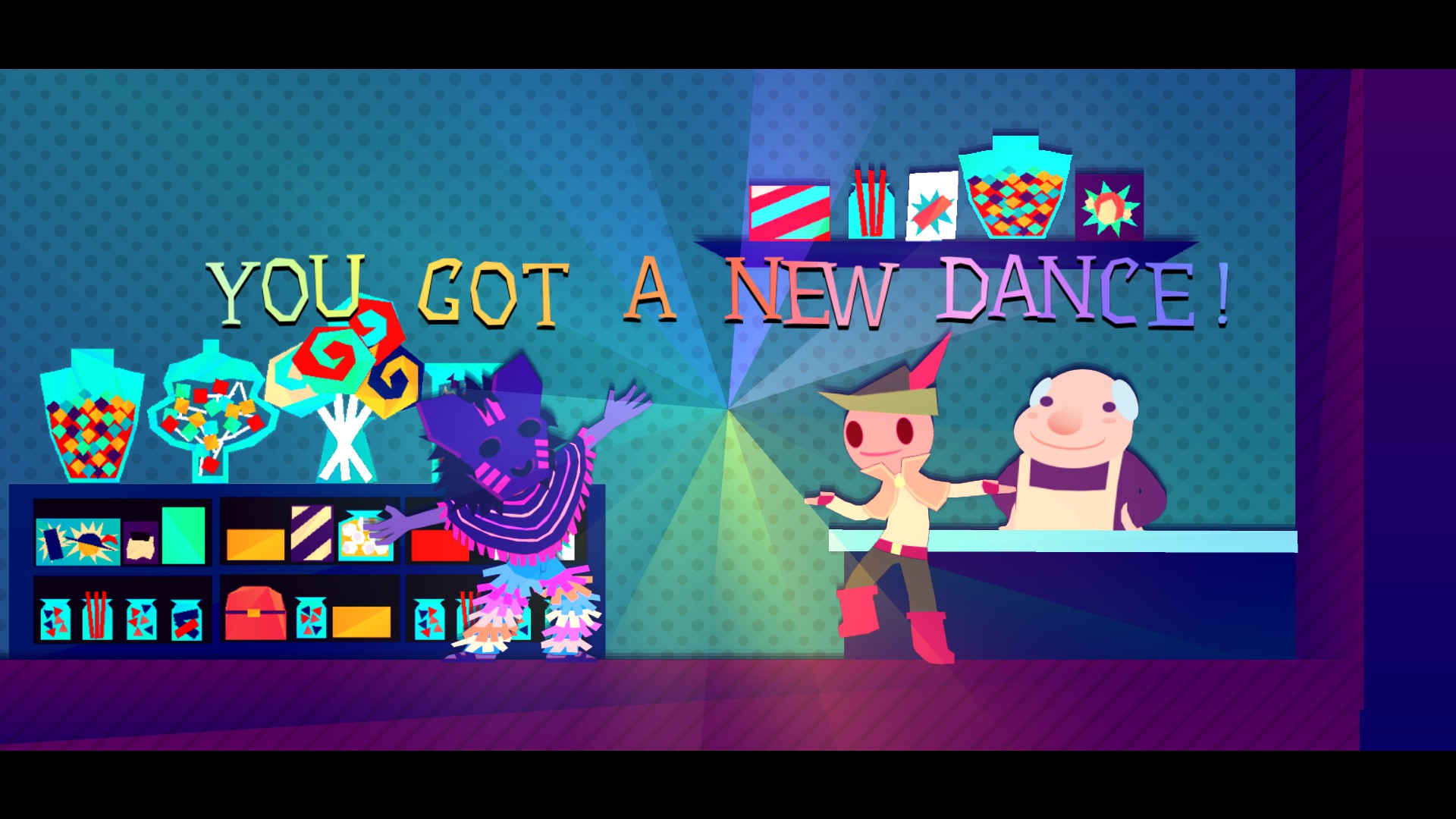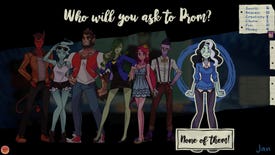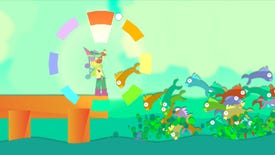Wot I Think: Wandersong
Sing me to life
You can jump on your bed in Wandersong. You start the game by waking up after a revelation: the end is nigh, and you can’t do anything about it because you’re just a bard, the most useless class ever. The situation doesn’t look good.
But before getting out of your house, you can jump on your bed. And in that moment I understood that, despite it all, everything was going to be okay in the end. Because Wandersong is a game that wants to make you smile.
But before making me smile, Wandersong made me cry. Well, its trailer did. Not because it was sad, but because of its sense of unrelenting cheeriness against impending doom. Because it’s about small people trying to accomplish big things, trying and failing and trying again, even though they know trying might be helpless. It’s about finding comfort in kindness even when everything around you is falling apart.
On a superficial level, Wandersong may seem similar to Night In The Woods. Though Wandersong is way more focused on puzzles and platforming, there’s a lot of talking to people, some roof-jumping, and the same flat, cardboard-like aesthetic as in Mae’s small town adventure. But while Night In The Woods is about surviving the horrors of a post-capitalist society, Wandersong is about seizing the means of production. With music.
So, the world is ending. According to legends, a melody called Earthsong should be able to stop the impending apocalypse, but nobody has ever sung it before. Everyone, including your grumpy witch friend, thinks it’s impossible. But you and her go to save the world anyway, because someone should at least try. You don’t kill monsters. You’re not that kind of hero. You jump and chat and solve puzzles and always stop to help people, even though the clock is ticking, because a world without happiness isn’t a world worth living in.
You do all of this by singing. That’s your deal. You click a button, and a colour wheel appears around you. To sing a note, you only need to point to a colour with your mouse (or your joystick). I’m pretty tone-deaf, but Wandersong made singing feel easy. Every note is associated with a colour and a direction, so I was always able to understand what to play even without being able to distinguish them. The non-musically oriented, the colourblind and even deaf people should be able to play this with ease. The game never punishes you for failing. Sometimes you fall off a platform or sing really bad, but that’s fine. There are no game over screens. You can try again, no hurry. You are allowed to suck.
Wandersong is also mercifully devoid of sequences requiring musical skills, like those loathsome minigames where you have to listen to a song and repeat the notes in the same order. Most puzzles require you to follow instructions on the screen, or to use your musical wheel to control the movements of something. Sometimes you just have to make up a tune. You use music to sail a boat, to talk to ghosts, to ring bells, to make flowers grow. You sing to find mermaids and to ask your mother to help you overthrow a factory.
Conveying how delightful this game is without being spoilery isn’t easy. The fun is all about travelling to new places, finding yourself in weird situations and discovering how the power of music will be used this time. You can sing even during cutscenes! And dance!
There’s a whole chain of events about acquiring new dance moves, and they don’t have any utility whatsoever apart from making you smile. You can sing an ominous DUN DUN DUUUNNNNN! when people talk about the apocalypse, or groove in the face of your enemies because why the hell not? The world is full of those small, lovely touches, from the way buildings bounce when you sing, to the subtle ways the bard’s expression changes as the story unfolds. It’s as if the developers are hugging you from the opposite part of the screen.
This is the kind of story where you can solve problems by singing at someone until they change their mind. Wandersong isn’t for cynical hearts. This game is nice, like a fairy tale for tired millennials. It’s a different kind of niceness than those of saccharine morning cartoons. It’s a game for (and about) people who have seen how cruel the world can be and decided to be kind anyway, because being bitter and cruel isn’t going to solve anything.
My only slight grievance is that the inventive mechanics make the game less instantly accessible than, say, the aforementioned Night In The Woods. A person who has never touched a controller in their life, would find all the puzzling and the platforming a bit overwhelming on first contact. But I say this because I wish everyone could enjoy Wandersong. Because the world is a dark, scary place right now, and we all need more games like it. Games that tell us that everything will be okay in the end, but only if we never stop being kind. Playing Wandersong is a form of self care.
Share this game with other people, if you can. Play together on a couch, passing a controller around and commenting on the story together. Wear your fluffiest pyjamas and make chamomile tea. Bring tissues as well. I hope you’re comfortable with crying in front of others, because you will shed a tear or two. I bawled at least four times. Five, if you count the trailer. But by the end, I wasn’t sad. I was just glad this game existed.
